Top 250 Movies Like The Samurai
A list of the best movies similar to The Samurai. If you liked The Samurai then you may also like: Zatoichi and the Chest of Gold, Zatoichi's Flashing Sword, Zatoichi's Revenge, Zatoichi and the Chess Expert, Zatoichi Meets the One-Armed Swordsman and many more great movies featured on this list.
The Samurai is a Japanese historical fiction television series made by Senkosha Productions during the early 1960s. Its original Japanese title was Onmitsu Kenshi. The series premiered in 1962 on TBS and ran continuously until 1965 for ten self-contained story arcs, usually of 13 episodes each. Also created were two black-and-white feature films by Toei Company, made in 1964 by the same crew which has created the TV series, and a stage show. The Samurai proved to be highly successful despite its initially very limited budget. It was the first Japanese TV program ever screened in Australia, where it premiered in 1964 and built up a remarkably large fan-base among the local young audience at the time, rapidly becoming a cult favourite. Despite its massive popularity in Australia as well as success in Japan, New Zealand and the Philippines, the series was not widely screened elsewhere and its fame remains largely restricted to those countries.
Zatoichi's Flashing Sword
Blind masseur Zatoichi is nursed back to health by a young woman after he is shot by a gang member. Zatoichi, who had come to the village to repay a debt, now feels further indebted. He commits himself to use his amazing sword skills to help the young woman's father, whose river-crossing service is under attack by the same gang responsible for Zatoichi's wounds.
Zatoichi's Revenge
Itinerant masseur and master swordsman, the blind Zatoichi, is near the village of his teacher, Hikonoichi, so he decides to visit. He learns of Hikonoichi's recent robbery and murder and the imprisonment of his virginal daughter, Osayo, in a brothel. Through friendship with Denroku, a local dice thrower and devoted father, Ichi uncovers an unholy alliance between the governor and the area strongman: among their scams is falsifying tax records to put farmers in debt, then forcing their daughters into prostitution at the boss's brothel. With help from Denroku's daughter, Otsuru, Ichi comforts Osayo until he can provoke showdowns with the villains and their henchmen.
Zatoichi and the Chess Expert
Zatoichi makes friends with a dangerous chess player, while fending off angry yakuza and bloodthirsty relatives out for revenge, and trying to save a sick child. Meanwhile, his luck with dice is turning.
Zatoichi Meets the One-Armed Swordsman
Zatoichi is a blind massage therapist and swordsman who finds out that something troubling is taking place on the outskirts of town. After discovering who the guilty parties are -- an accomplished Chinese martial artist named Wang Kang and his youthful attendant -- Zatoichi finds them and discovers that the pair's mixed up with a dangerous bunch of terrorist samurai who murdered the boy's parents. Now, Zatoichi must step in to save the day.
Videocracy
In a country where bella figura is a national pastime, Prime Minister Silvio Berlusconi is the maestro of media manipulation. Having risen to political primacy with the aid of his Mediaset empire, he now controls 90% of the bel paese’s television channels including the state-run RAI network. Quantity, it seems, does not equal quality. Fed on a diet of semi-naked dancing girls, inane competitions and rickety reality shows built around the most ridiculous of premises, is it any wonder that Italians are becoming a nation of fame-hungry wannabes?
Who Am I This Time?
Harry is a shy hardware store employee. But whenever he takes a part in a local amateur theater production, he becomes the part completely--while on stage. Helene is new in town, a lonely itinerant telephone company employee. On a whim, she auditions for and gets the part of Stella to Harry's Stanley when the theater group performs A Streetcar Named Desire. Before anyone realizes the growing affection between Helene and Stanley, she falls deeply in love with the sexy brute, not knowing what the real man is like.
Wild Guitar
A young rock & roll hopeful is given a shot at the big time by the unscrupulous owner of a small record company.
Jodorowsky's Dune
Shot in France, England, Switzerland and the United States, this documentary covers director Alejandro Jodorowsky (El Topo, Holy Mountain, Santa Sangre) and his 1974 Quixotic attempt to adapt the seminal sci-fi novel Dune into a feature film. After spending 2 years and millions of dollars, the massive undertaking eventually fell apart, but the artists Jodorowsky assembled for the legendary project continued to work together. This group of artists, or his “warriors” as Jodorowsky named them, went on to define modern sci-fi cinema with such films as Alien, Blade Runner, Star Wars and Total Recall.
Atlantic City
In 1915, Atlantic City is a sleepy seaside resort, but Brad Taylor, son of a small hotel and vaudeville house proprietor, has big plans: he thinks it can be "the playground of the world." Brad's wheeling and dealing proves remarkably successful in attracting big enterprises and big shows, but brings him little success in personal relationships. Full of nostalgic songs and acts, some with the original artists. Reissued in 1950 as "Atlantic City Honeymoon".
Harakiri
Down-on-his-luck veteran Tsugumo Hanshirō enters the courtyard of the prosperous House of Iyi. Unemployed, and with no family, he hopes to find a place to commit seppuku—and a worthy second to deliver the coup de grâce in his suicide ritual. The senior counselor for the Iyi clan questions the ronin’s resolve and integrity, suspecting Hanshirō of seeking charity rather than an honorable end. What follows is a pair of interlocking stories which lay bare the difference between honor and respect, and promises to examine the legendary foundations of the Samurai code.
Danger Close: The Battle of Long Tan
Vietnam War, 1966. Australia and New Zealand send troops to support the United States and South Vietnamese in their fight against the communist North. Soldiers are very young men, recruits and volunteers who have never been involved in a combat. On August 18th, members of Delta Company will face the true horror of a ruthless battle among the trees of a rubber plantation called Long Tân. They are barely a hundred. The enemy is a human wave ready to destroy them.
The Long Ships
Moorish ruler El Mansuh is determined to locate a massive bell made of gold known as the "Mother of Voices." Viking explorer Rolfe also becomes intent on finding the mythical treasure, and sails with his crew from Scandinavia to Africa to track it down. Reluctantly working together, El Mansuh and Rolfe, along with their men, embark on a quest for the prized object, but only one leader will be able to claim the bell as his own — if it even exists at all.
The Tale of Zatoichi
The adventures of a blind, gambling masseur and master swordsman. Zatoichi targets a yakuza-controlled village, because war with a neighbouring town's smaller gang is brewing.
Dreamboat
Thornton Sayre, a respected college professor - secretly formerly a silent films romantic action hero - is disturbed, feeling his privacy has been violated, and his professional credibility as a scholar jeopardized, when he learns his old movies have been resurrected and are being aired on TV. He sets out to demand this cease. However, his former co-star is the hostess of the TV show playing the films, and she has other plans.
The Endless Summer
Bruce Brown's The Endless Summer is one of the first and most influential surf movies of all time. The film documents American surfers Mike Hynson and Robert August as they travel the world during California’s winter (which, back in 1965 was off-season for surfing) in search of the perfect wave and ultimately, an endless summer.
Fight, Zatoichi, Fight
Blind swordsman/masseuse Zatoichi befriends a young woman returning home with her baby. When gangsters mistake her for Zatoichi and kill her, Zatoichi determines to escort the baby to its father. He gains the reluctant help of a young pick pocket and together they travel to find the baby's father. But they do not reckon on the father's reaction to their arrival, nor on their own growing feelings for the child.
First Men in the Moon
The world is delighted when a spacecraft containing a crew made up of the world's astronauts lands on the moon, but are shocked when the astronauts discover an old British flag and a document declaring that the moon is taken for Queen Victoria proving that the astronauts were not the first men on the moon.
Flipper's New Adventure
While widowed Porter Ricks is away at school learning to be a park ranger, his teen-aged son, Sandy, under adult supervision from a neighbor, remains at the family home in the Florida Keys with his pet dolphin, Flipper. While Po (as Porter is called by most) is away, Sandy learns that the family home, built on state land, is being torn down to make way for a highway. In turn, Sandy would be sent to live with relatives, while Flipper would be sent to the seaquarium permanently. Not wanting to be separated from Flipper, Sandy, using his skiff, runs away with Flipper. A distraught Po returns home to look for his son. Meanwhile, the Hopewell family from Britain are vacationing in the area. Their sailboat is hijacked by three escaped convicts, who take the father, Halsey, hostage, and set the three Hopewell women - mother Julia, and teen-aged daughters Gwen and Penny - adrift, they who eventually land on the island where Sandy is hiding... Written by Huggo
Mutiny on the Bounty
The Bounty leaves Portsmouth in 1787. Its destination: to sail to Tahiti and load bread-fruit. Captain Bligh will do anything to get there as fast as possible, using any means to keep up a strict discipline. When they arrive at Tahiti, it is like a paradise for the crew, something completely different than the living hell aboard the ship. On the way back to England, officer Fletcher Christian becomes the leader of a mutiny.
Asakusa Kid
Before he hit it big, Takeshi Kitano got his start apprenticing with comedy legend Fukami of Asakusa. But as his star rises, his mentor's declines.
Inside Daisy Clover
A girl on the road to stardom fights the dehumanizing effects of Hollywood life.
Down on Us
The story of Jimi Hendrix, Jim Morrison, and Janis Joplin, and how their message for their generation made them targets of a US government plot.
H.M.S. Defiant
Defiant's crew is part of a fleet-wide movement to present a petition of grievances to the Admiralty. Violence must be no part of it. The continual sadism of Defiant's first officer makes this difficult, and when the captain is disabled, the chance for violence increases.
Room Full of Spoons
Room Full of Spoons is an in depth documentary about the cult film that is widely accepted as the worst film ever made: The Room, and it’s eccentric creator Tommy Wiseau. Referred to as “The Citizen Kane of bad movies” by Entertainment Weekly, The Room grossed only $1800 during it’s initial box office run. Against all odds, Mr. Wiseau’s disastrous film found a new life on the midnight movie circuit and now plays to audiences around the world making it one of the most adored and important films in popular culture. Follow Rick Harper and his team on their journey across the Globe as they experience this midnight movie phenomenon, meet with the entire cast and crew of the The Room and piece together the story behind the mysterious Tommy Wiseau. The film has not yet received a full release due to legal action taken by Wiseau against the filmmakers.
The Committee
The Committee, starring Paul Jones of Manfred Mann fame, is a unique document of Britain in the 1960s. After a very successful run in London’s West End in 1968, viewings of this controversial movie have been few and far between. Stunning black and white camera work by Ian Wilson brings to life this “chilling fable” by Max Steuer, a lecturer (now Reader Emeritus) at the London School of Economics. Avoiding easy answers, The Committee uses a surreal murder to explore the tension and conflict between bureaucracy on one side, and individual freedom on the other. Many films, such as Total Recall, Fahrenheit 451 and Camus’ The Stranger, see the state as ignorant and repressive, and pass over the inevitable weaknesses lying deep in individuals. Drawing on the ideas of R.D. Laing, a psychologically hip state faces an all too human protagonist.
Iron Angel
A seasoned Sargent with a sorry unit, led by an angry 1st Lt., to take out an enemy hold for a convoy to proceed. After their success the Sarge and the crew meet up with another Lieutenant - Female nurse.
1/2 Man
A visual documentary of Einstürzende Neubauten, the German underground band, by Japanese cult director Sogo Ishii, made during their 1985 tour of Japan. The band makes an elaborate and remarkably choreographed appearance in the ruins of an old ironworks which was scheduled for demolition; footage of same was incorporated into the movie and a brief appearance on stage.
The In Crowd
A young man of the rock and roll generation is in his senior year of high school. When one day he successfully gets on a popular teen dance television show he becomes a star. The plot follows him as he lives his new life in his new world. What he finds are adoring fans, jealous rivals, bitter friends left behind, and the girl of his dreams...his dance partner.
Marley
Bob Marley's universal appeal, impact on music history and role as a social and political prophet is both unique and unparalleled. Directed by Academy Award-winning director Kevin Macdonald (The Last King of Scotland), MARLEY is the definitive life story of the musician, revolutionary, and legend, from his early days to his rise to international superstardom. Made with the support of the Marley family, the film features rare footage, incredible performances and revelatory interviews with the people that knew him best.
The Snow White Murder Case
Beautiful Noriko Miki works at a cosmetic company. One day, Noriko is murdered. People begin to suspect her co-worker Miki Shirono might have killed her. Television begins to cover her story. A TV show interviews Miki Shirono's colleagues, family, people from her hometown. Rumors turn into fear. Is she a wicked a woman?
Stop Making Sense
A concert film documenting Talking Heads at the height of their popularity, on tour for their 1983 album "Speaking in Tongues." The band takes the stage one by one and is joined by a cadre of guest musicians for a career-spanning and cinematic performance that features creative choreography and visuals.
Tokyo Olympiad
This impressionistic portrait of the 1964 Tokyo Summer Olympics pays as much attention to the crowds and workers as it does to the actual competitive events. Highlights include an epic pole-vaulting match between West Germany and America, and the final marathon race through Tokyo's streets. Two athletes are highlighted: Ethiopian marathon runner Abebe Bikila, who receives his second gold medal, and runner Ahamed Isa from Chad, representing a country younger than he is.
Topsy-Turvy
After their production "Princess Ida" meets with less-than-stunning reviews, the relationship between Gilbert and Sullivan is strained to breaking. Their friends and associates attempt to get the two to work together again, which opens the way to "The Mikado," one of the duo's greatest successes.
Dark Manhattan
A low-level gangster determines to let nothing stand in the way of his gaining control of the numbers rackets in Harlem.
Lupin the Third: Episode 0: First Contact
The stickup that started it all! Lupin III and Fujiko are both after an ancient artifact Jigen is supposed to protect, while Goemon happens to be searching for his clan’s lost treasure nearby. Of course, Inspector Zenigata isn’t far behind. This is the story of our heroes’ very first meeting!
The Bikini Carwash Company II
The girls are back. Their business has been a success, and a purchase contract has been signed with an international megabusiness. But the company CEO is not playing straight - he wants only the land the carwash locations are sited on - to tear them down and build condos. The girls have only a week to raise $4 million to buy their company back. Lingerie sales over a TV channel is the method of choice, and since the product is demonstrated by the carwash principals, the flesh quotient remains as high as expected.
Flight from Ashiya
Featuring an all-star cast and on-location shooting in Japan, where the story is set, three US Air Force rescue pilots must overcome their personal problems and differences to embark upon a dangerous mission to save raft-bound Japanese survivors from a murderous storm-tossed sea. As they head for their location, the film flashes back to chronicle the pasts of each pilot to make clear their mixed feelings about their upcoming assignment.
Lupin the Third: Island of Assassins
Lupin is framed for the murder of Inspector Zenigata by a mysterious assailant holding a silver-coloured Walther P38 pistol Lupin himself once owned. Tracking the true killer leads Lupin to the island of the bloodthirsty Tarantula assassins inside the Devil’s Triangle. After joining the spider-tattooed army against their will, Lupin and his gang make both new friends and enemies as they not only plan to take home the Tarantulas’ massive gold repository for themselves, but hunt down the shooter from Lupin’s past. Can Lupin put to rest this demon who haunts his memories with the Walther P38?
The Brain
Dr. Blake runs a TV show called "Independent Thinkers", which is sort of a Scientology-like self-help/religion program. But he's not making his audience think any more independently - with the help of an alien organism he calls The Brain, he's using brainwashing and mind control. The only thing that stands between them and world domination is a brilliant but troubled high school student with a penchant for pranks...
The Milpitas Monster
A town is terrorised by a monster that was created by local environmental pollution.
Stop the World: I Want to Get Off
The Anthony Newley/Leslie Bricusse London and Broadway musical hit Stop the World, I Want to Get Off is given literal treatment in this filmization. Newley stars as Littlechap, whose allegorical rise to success is countered by the instability of his private life. Like the play, the film is staged impressionistically, with Newley decked out in mime makeup and periodically stopping the action to address the audience, and with all the women in his life -- German, American and "Typically English" -- played by a single actress (Millicent Martin, taking over from the stage version's Anna Quayle). In Wizard of Oz fashion, the play itself is lensed in color, while the brief prologue, showing the actors preparing for their performance, is in black-and-white. The production includes such standards (and perennial audition pieces) as What Kind of Fool Am I? and Gonna Build a Mountain.
An Adventure in Space and Time
This docudrama travels back in time to 1963 to see how Doctor Who was first brought to the screen. Actor William Hartnell felt trapped by a succession of hard-man roles. Wannabe producer Verity Lambert was frustrated by the TV industry's glass ceiling. Both of them were to find unlikely hope and unexpected challenges in the form of a Saturday tea-time drama. Allied with a team of unusual but brilliant people, they went on to create the longest running science fiction series ever made.
37
On a March night in 1964, 37 neighbors in Queens, New York, witness the brutal murder of Kitty Genovese. None of them takes action or calls the police. 37 tells the story of a few of these people and what led up to the night when they unexplainably remained passive observers. The film is a convincing portrayal of a borough in change and a time characterized by racism, the Civil Rights Movement and political shifts. The actual event that inspired the film’s plot has been called a symbol for the moment when America lost its innocence. The director Puk Grasten skillfully weaves into her feature film debut various fates, dreams and family conflicts by leading us through an apartment building that comes to bear a collective failure.
Monster a Go-Go
American astronaut Frank Douglas mysteriously disappears from his spacecraft as it parachutes to Earth. He is apparently replaced by or turned into a large, radioactive, humanoid monster. A team of scientists and military men attempt to capture the monster.
Varan the Unbelievable
In an effort to find an economic means of purifying salt water, a joint U.S.-Japanese military command is set up on an isolated Japanese island where an unusual salt water lake is situated. However, their purifying experiments arouse the prehistoric monster Obaki from hibernation at the lake's bottom, and it proceeds to attack Japan. Although made by a U.S. independent film company, this film was based on a Japanese Toho monster film of 1958, "Daikaiju Varan", from which all of the monster effects scenes and a few incidental dramatic shots were edited into it.
The Highest Honour
After a highly successful raid on Singapore Harbour, soldiers of Z Special Unit lead a new expedition in Singapore, with disastrous results.
Shinobi No Mono 6: The Last Iga Spy
[Period covered: 1637-1651] This is one of the most complicated plots of any of the Shinobi no Mono films! This film tells the story of Saizo’s son, Kirigakure Saisuke, who after seeing his father die at the Battle Of Shimabara, grows up to be an expert ninja. Before he dies, “Mist” Saizo tells his children Saisuke, and Yuri that they are not really brother and sister. She, in fact, is the daughter of the late lord Sanada Yukimura, and must be saved from the shogun’s forces. In the chess match of spy versus spy, can Saisuke defeat the shogun’s chief strategist, Matsudaira Izunokami at his own game? Showing many exciting ninja tactics, it is not to be missed.
Shinobi No Mono 5: Return of Mist Saizo
[Period covered: 1616] On May 8th, 1615 the summer campaign of Osaka has reached the climax. This film takes place immediately following 'Ninja 4: Mist Saizo, Last of The Ninja'. Staying one step ahead of the Shogun’s forces, “Mist” Saizo tries to save the Sanada Clan, and avenge the death of his lord by assassinating the first Tokugawa Shogun. Following the first four films in this remarkable series, more previously unknown Ninja skills are shown to the world for the first time. The action heats up as Saizo single-handedly attacks the Shogun’s Palace!
The Fencing Master
The Fencing Master tells the story of a man trying to survive as the only world he knows is becoming increasingly irrelevant. Danpei Ichikawa lives for swordfighting – he was once a renowned kabuki swordfight choreographer, and as the Chairman of the New National Theatre Company, he wants nothing more than to choreograph the swordfights for the modern plays put on by the company.
Samurai Princess
When 11 of her friends are raped and murdered, leaving the Samurai Princess (Aino Kishi) the only survivor, she becomes infused with her comrades' souls. Transformed into an android, she sets out to avenge their deaths. Dai Mizuno co-stars as the princess's human partner in this Kengo Kaji-directed gore fest that features breast grenades, detachable chainsaw limbs, deadly guitar riffs and more.
Koroshi
Secret agent John Drake (aka Danger Man) goes to Japan to infiltrate a secret society that specializes in murder. - This film was originally conceived as part of the fourth season of the "Secret Agent" TV series. However, this was the first episode of the season and Patrick McGoohan quit shortly after filming it. Thus it was decided to package a double-episode from a TV show as a full-length movie. Patrick McGoohan quit "Secret Agent" to create "The Prisoner" TV series. - The original individual episodes of "Danger Man" that made up this movie were released for the first time on video in the 1990s. - The original two one-hour episodes that made up this film were broadcast in limited fashion in the UK in 1968.
Adventures of Zatoichi
Blind swordsman/masseuse Zatoichi befriends a young woman looking for her father, a village leader who has disappeared. As he helps her investigate the disappearance, Zatoichi also becomes involved with another young woman who is trying to help her brother, who has murdered someone at about the same time and place as the missing man was last seen.
Girls in Trouble: Space Squad Episode Zero
Girls in Trouble: Space Squad Episode Zero is an installment in the Toei Company V-Cinema series. Space Squad serves as a crossover between the revival of the Metal Heroes' Space Sheriff series and the Super Sentai series Tokusou Sentai Dekaranger. A prologue to Gavan vs. Dekaranger, this movie focuses on the female characters of both series.
The Ako Retainers
Toei’s 10th anniversary film, featuring an all-star cast from the golden movie era of the 1960s. A famous story of the 47 loyal samurai. When Lord Asano is unjustly executed, his loyal retainers strike back for revenge.
Choujinki Metalder: The Movie
A film version of Choujinki Metalder, set between episodes 17 & 18 premiered on July 18, 1987 at the "Toei Manga Matsuri" film festival, where it was shown as part of a quadruple feature alongside Dragon Ball: Sleeping Princess in Devil's Castle, Saint Seiya: The Movie and the film version of Hikari Sentai Maskman.
Gintama: The Best of Gintama on Theater 2D
Movie version of the Shinsengumi Crisis arc (episodes 101-105) and the Kabukicho Four Devas arc (episodes 210-214) which were screened in selected theaters in Japan.
Hudson's Bay
Highly fictionalized early history of Canada. Trapper/explorer Radisson imagines an empire around Hudson's Bay. He befriends the Indians, fights the French, and convinces King Charles II to sponsor an expedition of conquest.
Time of the Robots
An epic silent space opera about a robot-based alien invasion, featuring unique visuals created by meticulously modifying and editing thousands of hours of silent and serial film footage. With an original story, musical score, and sound design, Time of the Robots creates a new experience highly reminiscent of early cinema.
Daydream Believers: The Monkees' Story
The story of the 60s pop group The Monkees, as they rise above their status as a band created for a TV show, to establishing their legacy in their own right. The band faces many obstacles, among them the right to play their own instruments on record.
National Theatre Live: Julius Caesar
Caesar returns in triumph to Rome and the people pour out of their homes to celebrate. Alarmed by the autocrat’s popularity, the educated élite conspire to bring him down. After his assassination, civil war erupts on the streets of the capital. Nicholas Hytner’s production will thrust the audience into the street party that greets Caesar’s return, the congress that witnesses his murder, the rally that assembles for his funeral and the chaos that explodes in its wake.
The Curse of Steptoe
In the early 1960s aspiring stage actor Harry H. Corbett jumps at the chance to play junk-dealer Harold Steptoe in a television comedy show 'Steptoe and Son'. However, the show's success proves to be a poisoned chalice for him, type-casting him and thwarting his stage ambitions. Wilfrid Brambell, the actor playing his father, is marginalized in a different way. He is a gay man in an England where homosexuality is still illegal.
In His Life: The John Lennon Story
A film about the early life of the rock musician and his burgeoning career as a member of the Beatles.
Jerry Lewis: The Man Behind the Clown
Since the early days, Jerry Lewis—in the line of Chaplin, Keaton and Laurel—had the masses laughing with his visual gags, pantomime sketches and signature slapstick humor. Yet Lewis was far more than just a clown. He was also a groundbreaking filmmaker whose unquenchable curiosity led him to write, produce, stage and direct many of the films he appeared in, resulting in such adored classics as The Bellboy, The Ladies Man, The Errand Boy, and The Nutty Professor.
Lady Sen and Hideyori
From the late 1500's through the founding of the Tokugawa Shogunate many battles were fought as the great warlords vied for power over the nation. Princess Sen, a daughter of Tokugawa Ieyasu, is caught amidst the family feud between the Tokugawa and Toyotomi families. When her father Lord Tokugawa Ieyasu attacks her husband Toyotomi Hideyori's castle, her life takes a sudden turn for the worse. Will she ever find peace in her life again? One of Hibari Misora's most memorable performances, a movie you will never forget!
Hairspray Live!
A teenage girl living in Baltimore in the early 1960s dreams of appearing on a popular TV dance show.
The Pirates of Penzance
This Pirates of Penzance is primarily a historical document, part of the Broadway Theater Archive television series. It presents, with some inevitable, tiny technical shortcomings, a live 1980 performance in Central Park, not the 1983 movie of the same name that also starred Linda Ronstadt and Kevin Kline. Those who remember that film, which had the benefit of retakes and editing, a lavish production budget, and the spaciousness of a Hollywood studio, may find this video less polished. On its own terms, it is nonetheless thoroughly enjoyable.
Achilles and the Tortoise
Machisu is a painter. He never had the success he thinks he is entitled to. Regardless of this, he always remains trying to be successful. His wife Sachiko keeps supporting him, despite all setbacks.
It's a Summer Film!
Barefoot and her friends decide to make a samurai movie, gather a unique cast and staff for the production, and try to screen it at their school festival.
Once Upon a Mattress
Once Upon a Mattress is a musical comedy with music by Mary Rodgers, lyrics by Marshall Barer, and book by Jay Thompson, Dean Fuller, and Marshall Barer. The musical story of THE PRINCESS AND THE PEA, this television adaption of the 1959 Broadway hit was videotaped in black and white in front of a live audience and featured Burnett, Bova, Gilford, and White from the original Broadway cast, as well as new principals Bill Hayes as the Minstrel, Shani Wallis as Lady Larken and Elliott Gould (in his first appearance on any screen) as the Jester. Due to the reduced running time of 90 minutes, several songs and scenes were either cut or shortened. The conflict concerning Sir Harry and Lady Larkin was downplayed so that they were married in secret.
Goldstein
GOLDSTEIN, the feature film debut of talented director Philip Kaufman, is an early example of American independent filmmaking from the early 1960s. A fable about an old man with an odd effect on those he encounters, the film is a funny, warm-hearted postcard from an important moment in American cinema. GOLDSTEIN, starring veteran character actor Lou Gilbert, shared the Prix de la Nouvelle Critique at the 1964 Cannes Film Festival with Bertolucci’s Before the Revolution. Cinema deity Jean Renoir called the film "the best American film I have seen in 20 years."
Mechanical Marvels: Clockwork Dreams
Documentary presented by Professor Simon Schaffer which charts the amazing and untold story of automata - extraordinary clockwork machines designed hundreds of years ago to mimic and recreate life. The film brings the past to life in vivid detail as we see how and why these masterpieces were built. Travelling around Europe, Simon uncovers the history of these machines and shows us some of the most spectacular examples, from an entire working automaton city to a small boy who can be programmed to write and even a device that can play chess. All the machines Simon visits show a level of technical sophistication and ambition that still amazes today.
Flight of the Conchords: On Air
Behind the scenes look at the cult comedy series about Kiwi folk musicians Bret and Jemaine trying to make it big in their adopted home of New York. It follows the duo in the United States before and after the release of the first series, as they speak candidly about the road to fame, and we meet the other personalities, cast and crew that helped make their show a smash hit in America, NZ and the rest of the world. As Bret McKenzie's long-term partner, director Hannah Clarke was in a unique position to gain access to the Conchords at their most relaxed, as well as their most frantic and exhausted, and was able to get an up-close-and-personal glimpse into this experience. Through her insider's eye we are granted an intimate look into the lives of this great comedy act and discover how they won the hearts of America.
Star Trek: Voyager - Inside the New Adventure
Star Trek: Voyager – Inside the New Adventure was a special documentary, running for 50 minutes, produced by BECK-OLA Productions for broadcasting by UPN on 9 January 1995, the week prior to the premiere of Star Trek: Voyager. Hosted by Robert Picardo, the program went behind the scenes at the making of the pilot episode, "Caretaker", as well as the creation of the series itself. Segments included interviews with the cast and crew, as well as a "day-in-the-life" feature following Ethan Phillips during the filming of the Ocampa desert scenes.
A Life On Screen: Stephen Fry
In this documentary, Stephen Fry tells the story behind his success, after presenting the BAFTAs for more than ten years. With an outstanding career in film and television which began with a chance meeting with comedy partner Hugh Laurie at Cambridge, he went on to create the outrageous Melchett in Blackadder and has become a firm favourite on BBC2 with the quite interesting quiz QI. Featuring a supporting cast of friends, including interviews with Michael Sheen, Hugh Laurie and Alan Davies.
The Galaxy Britain Built: The British Force Behind Star Wars
Superfan David Whiteley celebrates the unsung British heroes behind the first film in the Star Wars’ franchise, 1977’s eponymously titled Star Wars. The Star Wars saga ends with the release of The Rise of Skywalker in December 2019. This documentary celebrates where it all began. It includes previously unheard stories from the people who made one of the most successful movies of all time, with additional interviews and previously unseen behind-the-scenes footage. The presenter, Star Wars superfan David Whiteley, who has his own connection to the original film (he was born on May the 4th), tracks down the often modest British talent who brought the galaxy to life. David explores the contribution of the London Symphony Orchestra and meets Ann Skinner, who was in charge of continuity. As well as seeing her original stills from the set, Ann reveals how she helped Sir Alec Guinness with one of the most famous speeches in Star Wars.
First Works
It's a mixed bag in the age of illuminating DVD supplements, but First Works effectively demonstrates the early promise of 13 successful filmmakers. Culled from programs originally broadcast on Showtime in 1990, this crude compilation combines student films, early professional work, and interviews with now-famous directors at various stages of commercial and artistic achievement.
Charming the Hearts of Men
A romantic drama set during the politically charged early 60s where a sophisticated woman returns to her Southern home town and discovers her options are limited yet discrimination is plentiful. With the help of a Congressional ally, she inspires historic legislation which allows opportunities and protections never before afforded to women.
Macbeth
Macbeth is a 1978 videotaped version of Trevor Nunn's Royal Shakespeare Company production of the play by William Shakespeare. Produced by Thames Television, it features Ian McKellen as Macbeth and Judi Dench as Lady Macbeth. The TV version was directed by Philip Casson. The original stage production was performed at The Other Place, the RSC's small studio theatre in Stratford-upon-Avon. It had been performed in the round before small audiences, with a bare stage and simple costuming. The recording preserves this style: the actors perform on a circular set and with a mostly black background changes of setting are indicated only by lighting changes.
Anime Supremacy!
The anime industry of Japan is enormous, with 200 new TV shows and two trillion yen in revenue each year. For seven years, soft-spoken yet strong-willed Hitomi Saito has climbed the ranks, and is set to direct a series for the first time. At the same moment, the difficult but undeniably brilliant director Chiharu Oji is set to make his big comeback after almost a decade. The hit series that made Oji famous is what inspired Saito to jump into the anime field, and her goal is to match, and even surpass, his success and relevance. Her chance has arrived. Their two programs are both scheduled to debut in the same prime-time Saturday slot, and after Saito challenges her rival on stage at an anime convention, the two production teams each set out to outdo one another, because there can only be one number-one!
Giovanna d'Arco
Director Werner Herzog, one of the most highly acclaimed German film makers, joins forces with the great Italian conductor Riccardo Chailly to effect a masterful rendition of this rarely-performed opera involving spectacular scenes of alternating light and dark, pageantry and intimacy. Staged and recorded at Teatro Comunale di Bologna in Bologna, Italy.
The Music Teacher
Music Teacher revolves around Alyson Daley (Potts), a high school music teacher who is on the brink of losing her beloved school music program because of district budget cuts. In an effort to spare the program, Daley's former students band together to stage a musical to raise money to keep the program alive.
Traveling Sandwich
Ito Marika stars as the lead in this 2022 SP that tells the story of a group of friends, who run a food wagon serving sandwiches made with local produce, and their interactions with a farming family that they meet in Takasaki City in the Gunma Prefecture. TV Tokyo has teamed up with Takasaki City, Gunma in order to showcase a series of programs and dramas that are part of its efforts towards creating programs aimed at regional development in Japan. This will be its third production, following “Hatake Sono Manma Restaurant” in 2020 and “Nouka no Mikata” in 2021.
Peter Pan
Peter Pan is a 1976 musical adaptation of J. M. Barrie's Peter Pan, or the Boy Who Wouldn't Grow Up, produced for television as part of the Hallmark Hall of Fame, starring Mia Farrow as Peter Pan and Danny Kaye as Captain Hook, and with Sir John Gielgud narrating. Julie Andrews sang one of the songs, "Once Upon a Bedtime", off-camera over the opening credits. It aired on NBC at 7:30pm on Sunday, December 12, 1976, capping off the program's 25th year on the air. The program did not use the score written for the highly successful Mary Martin version which had previously been televised many times on NBC. Instead, it featured 14 new and now forgotten songs, written for the production by Anthony Newley and Leslie Bricusse.
Oda Nobunaga
Among the great ‘Warlords’ in Japanese history, Oda Nobunaga holds a unique place. In effect, his military success led to the ultimate unification of the country. This historically accurate portrayal of Nobunaga’s life and times is highlighted by many of Japan’s biggest stars, most notably Watanabe Ken in the lead role. Bloody realistic fighting, massive battles, and castle intrigues all drawn from historical sources bring this 2 part drama to new heights in storytelling.
President Kennedy's Birthday Salute
President Kennedy's birthday celebration was held at the third Madison Square Garden on May 19, 1962, and more than 15,000 people attended, including numerous celebrities. The event was a fundraising gala for the Democratic Party. Features Marilyn Monroe singing to JFK.
The Samurai of Edo
This historical film depicts the life of a man who was at the mercy of the waves during transition from the end of the Edo period to the Meiji Restoration, and therefore, shows audience the dynamic change from Edo to Meiji. Before the war, the director, Eisuke Takizawa, together with the writers, formed a scenario writer group "Narutaki-gumi and they shot many historical masterpieces.
The Beach Boys: The Lost Concert
Archive performance from 1964, long thought lost to posterity, this concert footage features the California boys in the days that Brian Wilson still appeared on stage with them. Includes the hits 'Little Deuce Coupe', 'Fun, Fun, Fun', 'In My Room' and 'Surfin' USA'.
Pacific Overtures
Pacific Overtures is a musical written by Stephen Sondheim and John Weidman. The show is set in Japan beginning in 1853 and follows the difficult westernization of Japan, told from the point of view of the Japanese. In particular, the story focuses on the lives of two friends caught in the change. The original Broadway production of Pacific Overtures in 1976 was staged in Kabuki style, with men playing women's parts and set changes made in full view of the audience by black-clad stagehands. It opened to mixed reviews and closed after six months, despite being nominated for ten Tony Awards. Set in 1853 Japan, Pacific Overtures follows the Westernization of Japan, mainly through the story of Kayama, a samurai, and Manjiro, a fisherman. The lives of both men are radically changed by the coming of American ships to Japan.
Samurai
A young Japanese-American orphan in California is taken in by a priest who is actually a Japanese secret agent and a samurai warrior. Due to the samurai's training, the boy murders his English teacher, kills the American parents who have adopted him, smuggles Japanese secret plans into the country, and eventually becomes the governor of California with plans to infiltrate Japanese spies into the state so they can take over.
Man Vs.
As host of his own hit TV series, 'MAN VS', Doug Woods is forced to fend for himself for five days in remote locations with no crew, food, or water, only the cameras he carries on his back to film his experiences. Doug's in the remote woods for a routine episode, until he's awoken by an earth-shaking crash. Things get weirder as it becomes clear Doug isn't alone. Someone or something is watching him.
Evangelion: Death (True)²
A highly experimental film presenting a story out of chronological order taking place 15 years after a near-apocalyptic catastrophe, about four traumatized 14 year olds who are tasked with piloting massive humanoid decisive weapons called Evangelion, the psychologically maladjusted adults who handle and command them, and the events and forces that affect them or which they take part in as they engage massive hostile invaders known as "Angels."
Asura
A recording of the 2003 production of the 1987 play. An evil nun known as Bizan wishes to bring back to life the demon monarch Ashura, so that the oni may rule the world. But that’s not an easy task with the Demon Wardens scouring the land and taking care of demons who have taken on human form. Five years ago, Wakuraba Izumo served as a Demon Warden lieutenant alongside his chief, Kuninari and the slightly mental Abe Jaku. Since then he’s retired and has been enjoying success as a lead actor for the Nakamura Kabuki troupe, led by playwright Nanboku Tsuruya IV, while his former colleagues continue to fight the good fight. Meanwhile the police authorities have been struggling to capture the thief known as “The Night Camellia.
The Beatles: Eight Days a Week - The Touring Years
The Beatles stormed through Europe's music scene in 1963, and, in 1964, they conquered America. Their groundbreaking world tours changed global youth culture forever and, arguably, invented mass entertainment as we know it today. All the while, the group were composing and recording a series of extraordinarily successful singles and albums. However the relentless pressure of such unprecedented fame, that in 1966 became uncontrollable turmoil, led to the decision to stop touring. In the ensuing years The Beatles were then free to focus on a series of albums that changed the face of recorded music.
Space 1999
A moonbase crew fights for survival in the aftermath of a massive explosion that shifts the moon from its orbit into space.
Lugosi: Hollywood's Dracula
Lugosi: Hollywood's Dracula uncovers the life and career of legendary actor Bela Lugosi, examining his early life in Hungary and Germany through his Hollywood successes and eventual decline. The film features a vast array of never-before-seen footage of the actor, ranging from remains of his 1918 film Struggle for Life to behind-the-scenes home movies on the set of RKO Studios. Lugosi is peppered with dozens of rare films clips and photographs, with the story itself coming to life thanks to the vast array of on-camera interviewees.
Fuck You All: The Uwe Boll Story
Honing his craft as an indie filmmaker in Germany in the early 90s, Uwe Boll never could have imagined the life that lay before him. From working with Oscar-winning actors and making films with US$60million budgets to having actors publicly disparage him and online petitions demanding he stop making films, Boll continued to work; he has a filmography of 32 features, a career that has led to his new life as a successful high-end restauranteur. Already a cult legend, he will be remembered forever in the film world; for some, as a modern-day Ed Wood, who made films so bad, they're good, while for others, a prolific filmmaker who came from a small town in Germany and never compromised his integrity while forging his own unique Hollywood trajectory.
Phil Ochs: There But for Fortune
From civil rights to the anti-war movement to the struggles of workers, folksinger Phil Ochs wrote topical songs that engaged his audiences in the issues of the 1960s and 70s. In this biographical documentary, veteran director Kenneth Bowser shows how Phil's music and his fascinating life story and eventual decline into depression and suicide were intertwined with the history-making events that defined a generation. Even as his contemporaries moved into folk-rock and pop music, Phil followed his own vision, challenging himself and his listeners. Not one to pull punches, Ochs never achieved the commercial success he desperately desired. But his music remains relevant, reaching new audiences in a generation that finds his themes all too familiar.



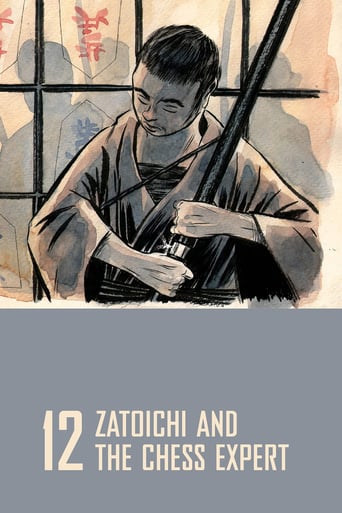




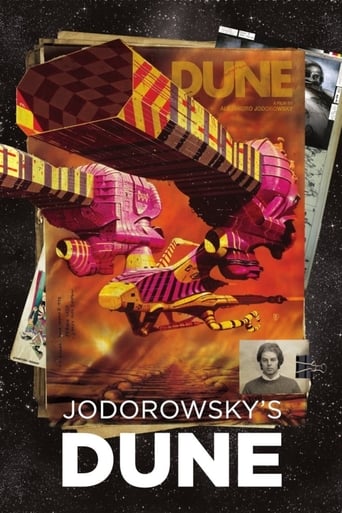
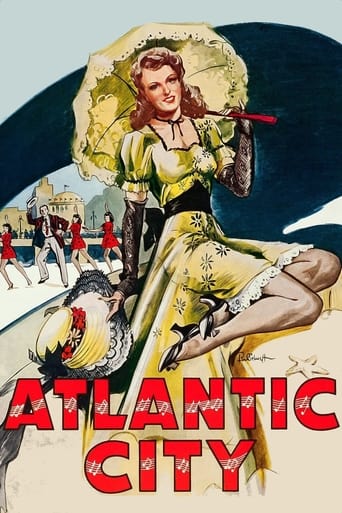


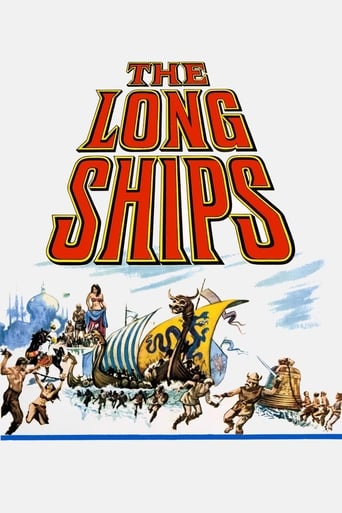




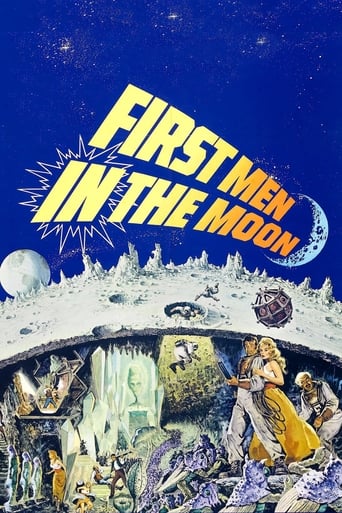





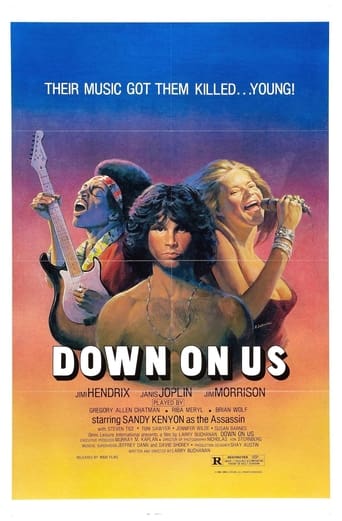
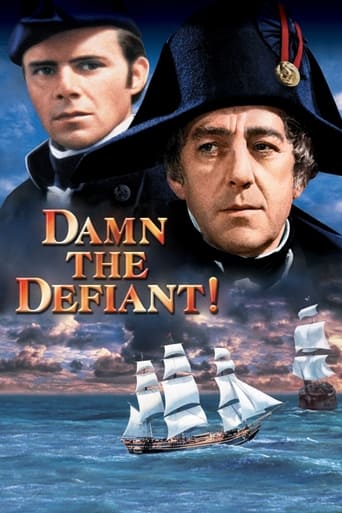





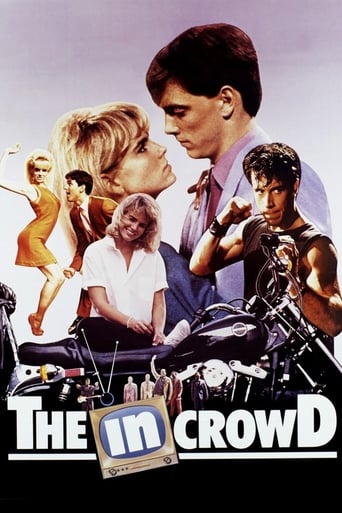




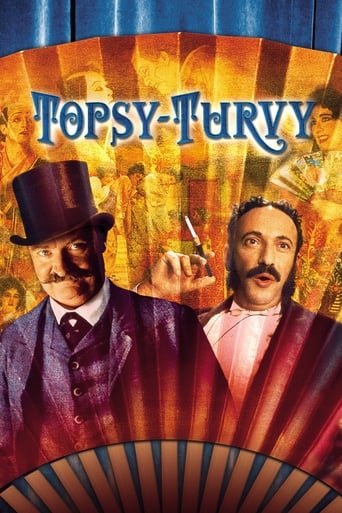





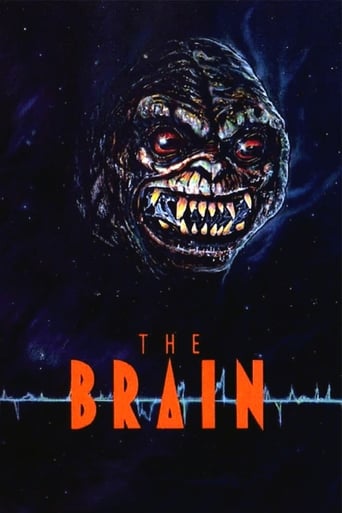


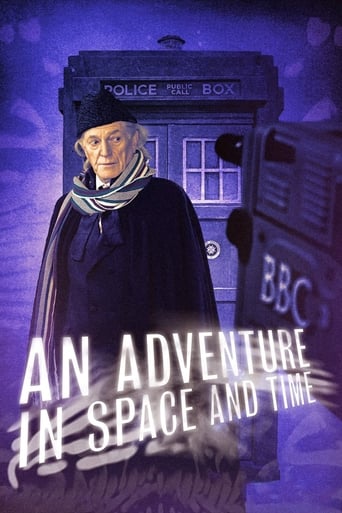
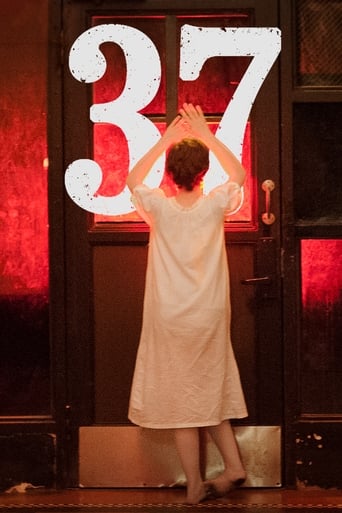


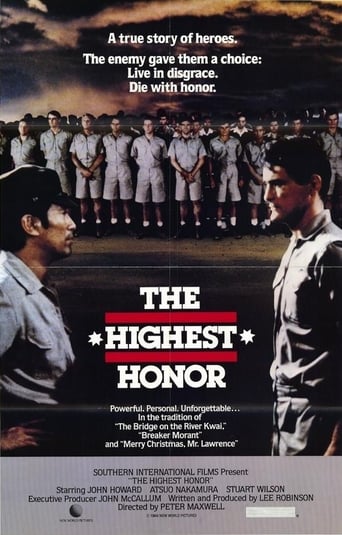














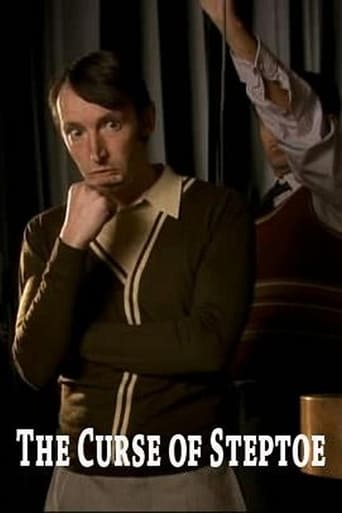














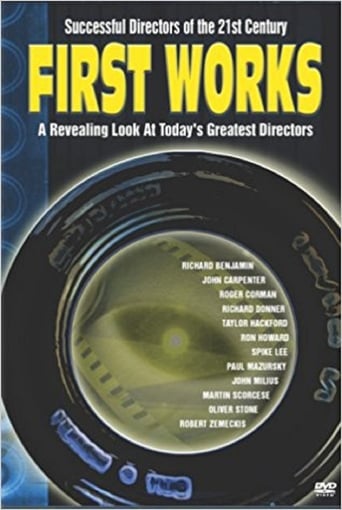
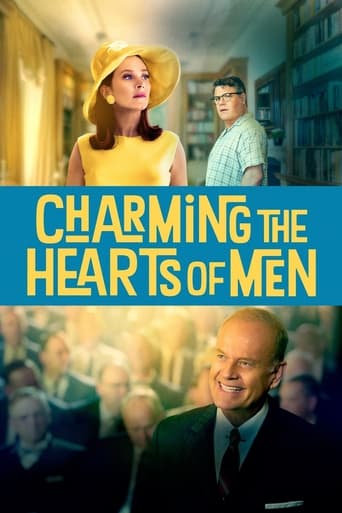





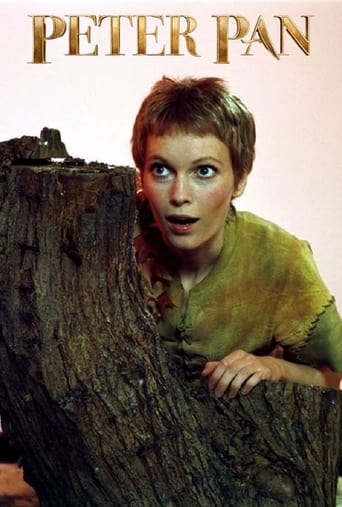




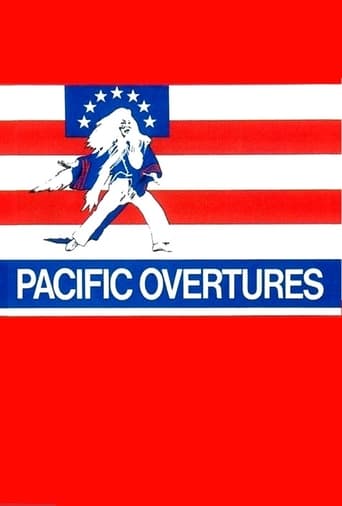






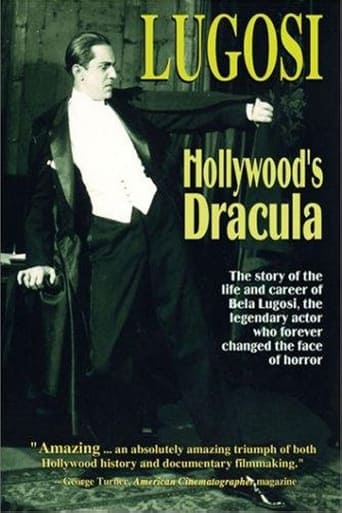
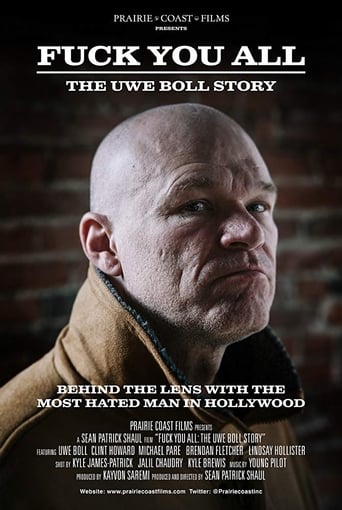
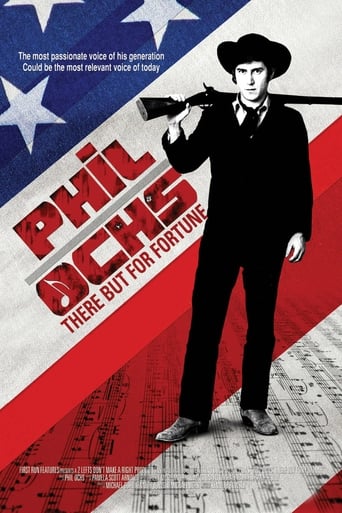
Zatoichi and the Chest of Gold
Ichi travels to the village of Itakura to pay his respects at the grave of Kichizo, a man he killed two years ago. When some tax money is stolen while in transit to the governor he is accused and sets out to find the money and clear his name.